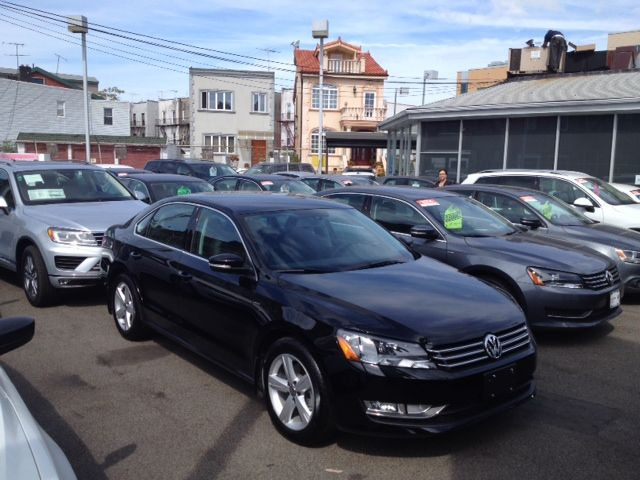Volkswagen Diesel Scandal: How Are Individual Dealers Being Affected?

On a calm Friday afternoon, the lot at Bay Ridge Volkswagen in the Brooklyn borough of New York appeared to be packed to capacity with new and used VWs parked neatly beside one another, barely any space between most of them. Even though almost every inch of the dealership’s grounds seemed to be occupied by vehicles, no customers were driving them off the lot.
One could see this as a slump in sales, possibly caused by the news that the automaker Volkswagen AG had been rigging some of its diesel cars to cheat on emissions tests, but Bay Ridge Volkswagen’s general manager Jed Kass said the scandal hasn’t hit the dealership at all -- it doesn’t even sell that many diesel cars.
“The percentage of our business that’s diesel is very small,” said Kass, who has been in the automotive-sales business for 31 years and has been selling Volkswagens for the past five years. “Though we have a few customers affected, it’s a minority.”
The U.S. Environmental Protection Agency’s disclosure of the Volkswagen emissions-test fraud was followed almost immediately by plummeting share prices and a shakeup of the company’s corporate structure. Edmunds.com, an online resource for car buyers, predicted that Volkswagen and its Audi unit would be the only major auto brands to see sales slump this month compared with the same month a year ago. But it may not be all doom and gloom for the firm: Nationally, diesel sales constitute less than one-quarter of its total sales.
“I don’t think it’s going to help sales, but I don’t think they have been affected one way or the other,” Kass said.
BREAKING: German government says Volkswagen illegally manipulated millions of diesel emissions tests. http://t.co/j6ZbCmGAiz
— CNN Breaking News (@cnnbrk) September 25, 2015Although some Volkswagen dealers said they were overwhelmed by negative blowback from customers when the scandal news broke, the effect hasn’t been felt by all VW dealers nationwide. Because the scandal unfolded only about a week ago, Kass said he hasn’t been able to tell whether the bad publicity has had a real impact on foot traffic or sales at his dealership.
About three or four customers who bought the affected Volkswagen models have come back to Kass asking about the cars, but he said they were mostly concerned that the cars weren’t safe to drive. Once Kass told them the cars were safe to drive, the car owners calmed down.
In forecasting a September sales drop, Edmunds.com noted that Volkswagen diesels don’t make up a particularly large piece of the overall car market. And it pointed out that Volkswagen doesn’t have a very large share of auto sales in the U.S. anyway.
“Volkswagen’s deception is dominating headlines, but it is not keeping shoppers away from other brands’ showrooms,” Jessica Caldwell, Edmunds.com director of industry analysis, said in a statement. “It puts the crisis in a little bit of perspective, since these Volkswagen diesels don’t constitute a very big share of sales. It’s also a reminder that buyers won’t disappear from the market just because they suddenly can’t or don’t want to buy these affected cars.”
At some dealers, diesel sales do make up significant pieces of their business. Chris Murphy, sales manager at Volkswagen of Oakland in California, told the Associated Press that diesel sales make up about 30 percent of his business and that some people want the dealership to give them some kind of refund or buy back the cars.
“We can’t afford to buy all those cars back. We’re just one dealer,” Murphy told AP. “This is definitely going to impact our business. We’re trying to focus on positive, not negative, things because there’s nothing we can do.”
While waiting to see whether his overall sales will be affected in the future, Kass and his salespeople are also waiting for word from Volkswagen corporate offices on how to remedy the situation. Company heads sent the dealership a letter saying they are committed to solving the problem, but didn’t give any specific directions.
As a result, Kass said, “We really want to see what Volkswagen will do, and we’ll react when they tell us what their plans are.”
© Copyright IBTimes 2024. All rights reserved.





















